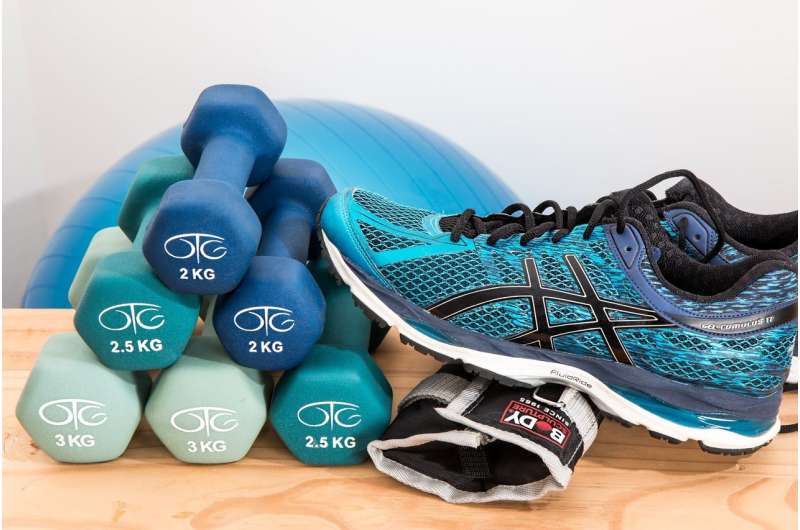Combining aerobic and resistance training may offer the most benefits for women during and after chemotherapy for breast cancer, according to a new U of A study. The research also showed that women who included resistance training in their workouts were more likely to stick with regular exercise after their cancer treatment.. Credit: CC0 Public Domain
How much do you exercise? Government guidelines suggest that, in order to stay healthy, adults should perform at least 150 minutes of moderate aerobic activity every week—that's exercise that gets your breathing and heart rate up.
A new study, published in the Journal of Physiology investigated a home-based high-intensity interval training (Home-HIT) programme and studied its benefits for clinically obese individuals with an elevated risk of heart disease.
Previous research has demonstrated that under controlled laboratory conditions, you can get the same benefits from three 20-minute exercise sessions, as from the Government-recommended 150 minutes. However, the question is whether data produced in highly controlled laboratory environments can be translated to the real world.
The research team at Liverpool John Moores University were interested in whether Home-HIT is a time-efficient strategy that helps to reduce other common exercise barriers such as difficultly with access to exercise facilities due travel time and cost.
In this study, 32 obese people completed a 12-week programme of either: 1) a supervised, lab-based cycling HIT programme, 2) the Government-recommended 150 minutes of moderate intensity exercise or 3) a home-based HIT programme of simple body weight exercises suitable for people with low fitness and low mobility, and performed without equipment. For all of these regimens, the exercise was performed three times per week.
Credit: The Physiological Society
The researchers measured a range of health markers in these participants, including body composition, cardiovascular disease risk, and the ability to regulate glucose. They found that the home-based HIT was as effective as both the Government-recommended 150 minutes and the supervised, lab-based HIT programme for improving fitness in obese individuals.
Sam Scott, first author of the study said: "An exercise regimen such as Home-HIT that reduces barriers to exercise including time, cost and access, and increases adherence in previously inactive individuals, gives people a more attainable exercise goal, and thus could help improve the health of countless individuals."
More information: Sam N. Scott et al, Home-HIT improves muscle capillarisation and eNOS/NAD(P)Hoxidase protein ratio in obese individuals with elevated cardiovascular disease risk, The Journal of Physiology (2019). DOI: 10.1113/JP278062
Journal information: Journal of Physiology
Provided by The Physiological Society























